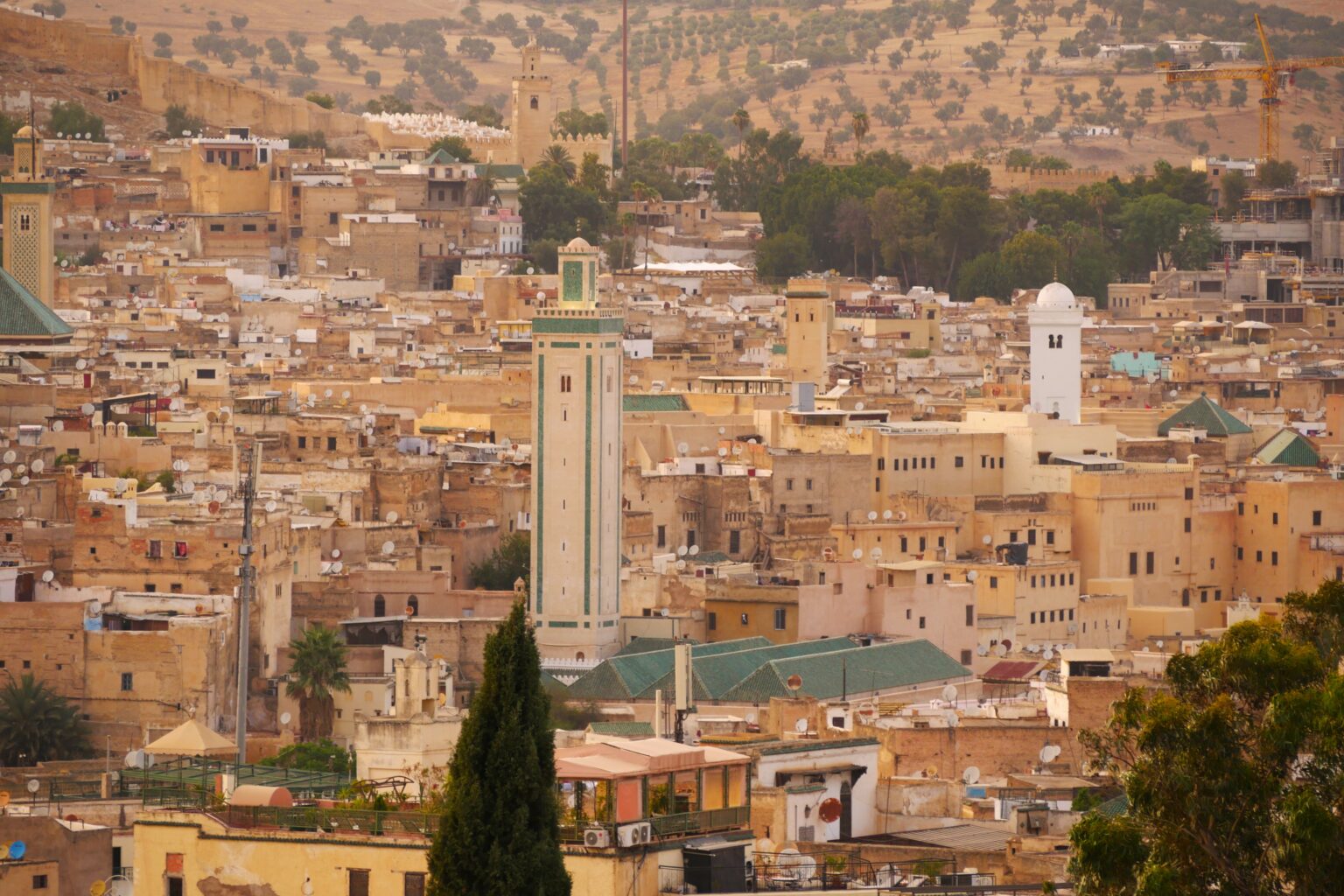The city of Fez and its historical landmarks
The city of Fez
Morocco is famous for many ancient cities, the most prominent of which is the historic city of Fez, founded in the second century AH. https://gomarrakechdeserttrips.com/tours/4-days-from-marrakech-to-fes-via-merzouga-desert/ Fez is located in northern Morocco, 198 km east of the capital Rabat, 796 km north of Agadir, and 291 km from Casablanca. Other cities surrounding it are Meknes and Kenitra. Fez is divided into three sections: Fez Bali (the old city), Fez El Jadid (the thirteenth century AD), and the new city (the French colonial period).
History of the city of Fez
The city of Fez was founded by Idris bin Abdullah in the late second century AH, 172 AH when he came to Morocco to flee Abbasid persecution. He struck his axe on the right bank of the Fez River, and it was named after the strike of the axe. Arab families from the villagers and Andalusians came to this city, and some residential neighborhoods were established in it. Then a second city was founded on the left bank of the river by Idris II, and the two cities were united by the Almoravids led by Youssef bin Tashfin. This city became an important place in northern Morocco, and many conflicts followed the city, in each conflict, it was an important center in Morocco. It is mentioned that it was the capital of Morocco from 1912 AD to 1956 AD during the French colonial period, and the city lost its position after the capital was transferred from Fez to Rabat, which was reflected in the migration of many of the city’s citizens to other cities.
Description of the city of Fez
This ancient and rich city suggests to its visitor that he is about to enter the tales of the One Thousand and One Nights. This is what it gives to the visitor of it as an impression reflected by its magnificent palaces and museums that are teeming with civilization, and its schools that produced the greatest Muslim scholars. As for the walker in its streets and examines its buildings, he will see in it the chivalry of the Arabs and glimpse the precision of the Andalusians and their ingenuity in architecture. It is a land that has witnessed many different civilizations. In Fez, there is an old city (Fez Bali) that UNESCO has classified as a global human heritage for preserving its authenticity and character for more than 1200 years. Fez is a city that competes with Florence, Athens, and others in being a living world heritage until now.
Historical Landmarks of Fez
Historical Landmarks of Fez:
Al-Qarawiyyin Mosque:
This mosque was founded in 857 AD by Fatima Al-Fihri, and since that time the mosque has witnessed more additions, such as: the minaret that was added in 957 AD, and the gypsum domes, and is characterized by arches, Quranic inscriptions, supplications, and the pulpit that was built by the Almoravids.
Bou Inania Madrasa:
It is the most famous school in Morocco, which was founded in 1350 AD by Sultan Ou Inan Al-Marini to be an educational institution for students and is famous for its beautiful minaret, elegant decorations, and the water clock, the operation of which is still a mystery to specialists.
Dar Al-Batha Museum:
It is a palace founded by Sultan Moulay Abdel Aziz in 1897 AD and is characterized by the Spanish-Moroccan style, as it was designed for royal receptions, and was converted into a museum that includes artistic and handicraft artifacts in 1915 AD.
Attarine Madrasa:
It is a beautiful architectural masterpiece founded by the Marinid Sultan Abu Said Othman. It consists of an open courtyard with a water basin. The walls of the courtyard are famous for their ceramic decorations and mosaics. It is surrounded by a hall dedicated to prayer, and halls dedicated to students and teachers.
Bab Abi al-Jund:
It is considered the main entrance to the city and is the most famous landmark in Fez. It is located in the northwest side next to Pasha al-Baghdadi Square. Adil Palace: This palace was built by a merchant during the reign of Sultan Moulay Abdullah in the late seventeenth century. Adding to the beauty of the architectural design of this palace is its distinguished location among the palaces that were owned by the princes and notables of Fez, which are the two things that made it a well-known historical landmark to this day.
Borj al-Shamal:
This tower, which was built in 1582 AD by the Saadians to be one of the most important watchtowers in the old city of Fez, currently houses a museum of traditional weapons and rare pieces, which demonstrates the antiquity of this landmark and the era in which it was built.







